End of Rooftop Solar Subsidy for Industrial & Commercial Consumers: What You Need to Know
End of Rooftop Solar Subsidy for Industrial & Commercial Consumers: What You Need to Know
In a far reaching decision, the subsidy for setting up roof top solar will be completely removed for the Commercial and Industrial consumers going forward pending the Cabinet’s decision. The decision also clearly points towards the maturity of solar technology and its increasing affordability on its own for the widespread implementation.
MNRE proposes to provide subsidy equivalent to 15% of the Capital Expenditure for the roof top solar solution at the benchmark cost of Rs 75,000 per kW. As such the maximum subsidy available to the consumers will reduce to Rs 11,250 per KW. The subsidy will be provided through State Nodal Agencies and would be limited to about 4,500 MW of roof top solar installation in the country. However, this subsidy will be available to the Domestic or Residential consumers only and will not be provided to the Industrial and Commercial consumers. The final decision on this matter is expected to be announced in a next couple of months.
The cost of generation from the roof top solar solutions is reaching the grid parity already. With the benefit of Accelerated Depreciation (AD) of 80% in the first year itself, the Industrial and Commercial consumers have already a huge benefit available. Due to AD, these consumers are able to get an upfront rebate of almost Rs 20,000 per KW at the new benchmark cost of Rs 75,000 per KW which is equivalent to ~27% of the cost solar solution. Therefore it is being felt that the Industrial and Commercial consumers do not require any further subsidies. In fact, today the pay back for the roof top solar solutions is somewhere between 3-5 years for the most consumers depending on the solar radiation and applicable Discom tariffs.
The subsidy may continue for the Domestic or the Residential consumers for another year. The attractiveness of the roof top solar for this category is considered to be less. However, the roof top solar has become affordable for Domestic consumers also after the implementation of Net Metering facility by the Discoms. A number of other steps including providing the financing under House Loan schemes has been taken up by the government.
Suggested Articles

Why Is Investing In Grade A Panels Important?
Investing in Grade A solar panels guarantees superior performance, safety, and maximum return on your solar investment.
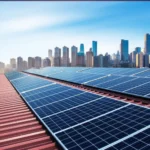
India and Japan Strengthen Renewable Energy Cooperation
India and Japan have initiated a partnership under the Asia Energy Transition Initiative (AETI) to support India’s clean energy transition. India has set an ambitious target of achieving net-zero by 2070, while Japan aims to achieve the same by 2050.
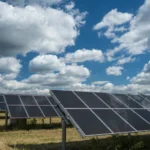
Updated Rates of Solar Subsidy in Delhi: Cost, Eligibility & Benefits
Discover the latest solar subsidy rates in Delhi for 2025. This guide explains the updated costs, eligibility criteria, and benefits to help you maximize savings on your rooftop solar installation.
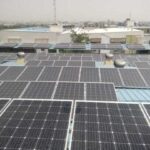
How Installers Cut Costs on Solar PV Module Mounting Structures
Solar PV mounting structures can significantly impact project cost. Explore how expert installers optimize design, materials, and labor to achieve safe, durable, and cost-effective solar installations

Everything You Should Know About Solar Batteries
Discover how solar batteries store excess energy, maximize your solar system’s efficiency, and provide reliable power during outages. Learn about the types, benefits, lifespan, and maintenance tips to make the most of your solar investment.

6 Innovative Applications of Solar Energy You Should Know About
Explore how solar energy is revolutionizing daily life and industries. From solar-powered transport to smart cities, discover six groundbreaking solar applications shaping a cleaner, smarter future.
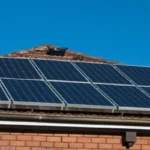
Maintenance Of Solar Power Plant in India: Everything You Need to know
Proper maintenance is key to maximizing the efficiency and lifespan of solar power plants in India. Learn essential tips, best practices, and common maintenance tasks.

Sustainable Solar Panel Disposal: Recycling for a Greener Future
Sustainable solar panel disposal ensures old or damaged panels are recycled responsibly, reducing waste and environmental harm. By adopting eco-friendly recycling and reuse practices, we can recover valuable materials, lower carbon impact, and make solar energy truly sustainable from installation to end-of-life.

500 kW Solar System Price in Haryana: Latest Cost, Benefits & Savings
Looking to install a 500 kW solar system in Haryana? Discover the latest 2025 price range, government incentives, and key benefits for commercial and industrial users. Learn how adopting solar can cut electricity bills and boost long-term savings.
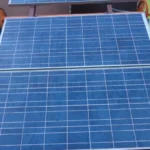
Rooftop Solar for Factories: Maximum kW You Can Install
Industrial rooftop solar guide: Understand KW capacity limits, installation guidelines, and best practices for factories and manufacturing units